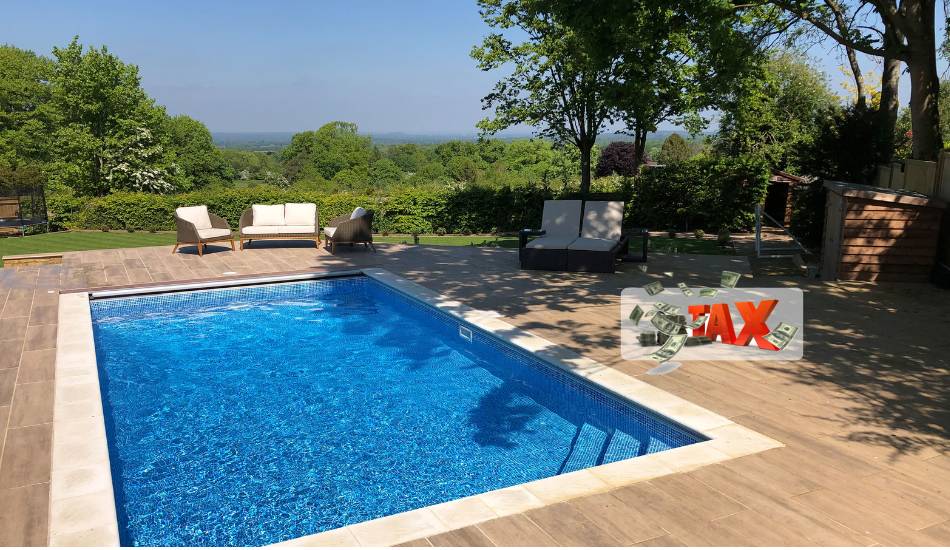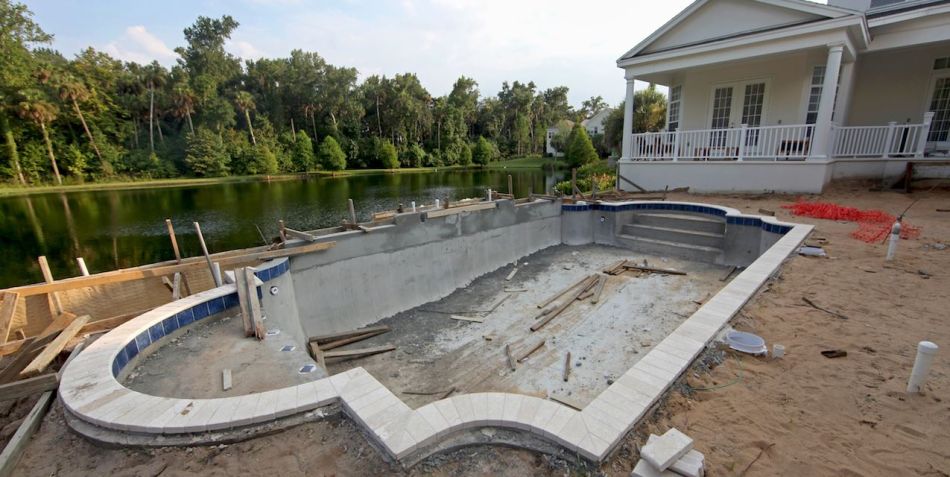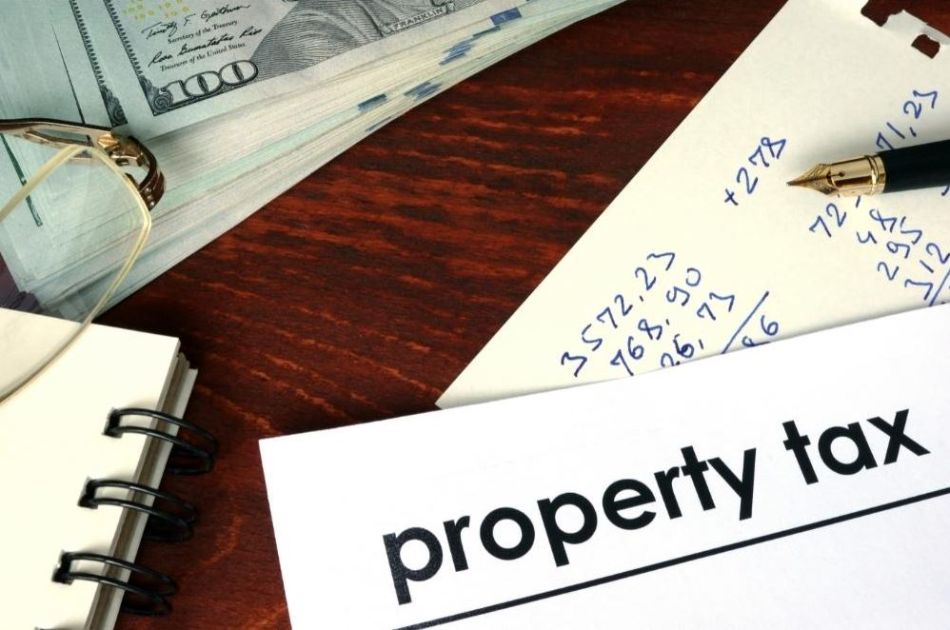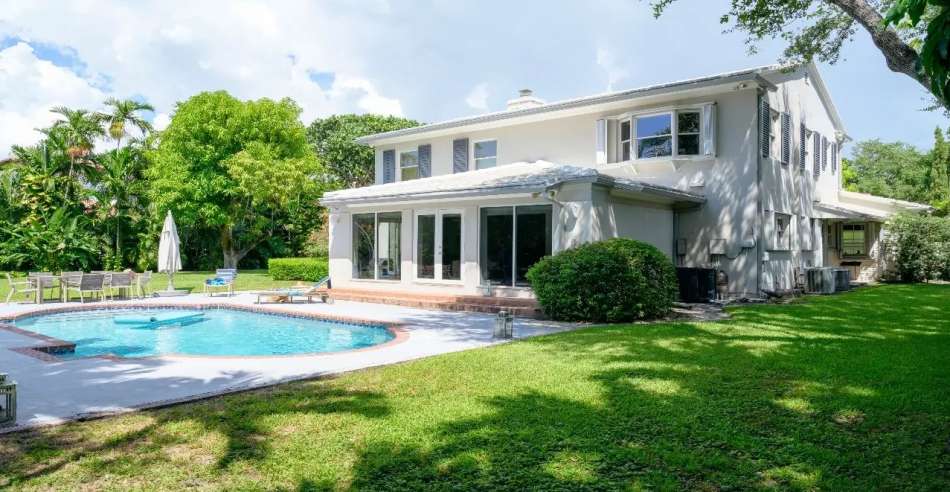Does An In-Ground Pool Increase Property Taxes?

People choose to build an in-ground pool to have a place to enjoy, hang out with friends, and exercise. Although this sounds like a great investment, you should ask yourself, will this also increase my property taxes? The answer is YES! Although it is nice to have a pool, it is also an additional cost. In this article, we’ll cover does add an in-ground pool increases your property tax. So, let’s start!
Does An In-ground Pool Increase Property Taxes? Yes, an in-ground pool increases property taxes as it adds value to the homeowner’s property. Besides the higher tax rate, an additional cost is also the homeowner’s insurance. However, having an above-ground pool doesn’t increase property taxes because it doesn’t add value to the property.
Having an in-ground pool will increase your home’s value, and by doing so, it automatically increases your property taxes. If you have a swimming pool, you will need higher insurance. In-ground pool’s cost is also usually the basis of the higher property, which can increase your taxable gain if you decide to sell your home.
This article will help you understand the connection between property taxes and home value by comparing in-ground pools with above-ground ones. We will also discuss how everything mentioned may affect the value of your home.
How Does Property Value Increases The Property Tax?

Firstly, it is important to know the connection between property values and property taxes and how they affect each other. The property’s value depends on a few factors, such as how many structures you have on your property and how good of quality they have. An in-ground pool can be made well, so it can increase your property taxes because of a higher home value.
If you have a property that does not have other structures, it will usually have a lower value. You can learn how much you have to pay in property taxes by calculating your property value and checking with the local government about charging. Property taxes often vary from state to state and are calculated in mill levies.
By combining these three areas, professionals make an assessment of your property and determine its value:
- The cost of replacement
- The comparison to the neighborhood
- The cost of rent
The Cost of Replacement
This value is usually the closest to the homeowner’s insurance, and it defines the cost that you need to rebuild your home. An in-ground pool is also included in this cost as well as other structures situated in the outdoor area.
The Cost of Rent
Rental value is the one that is determined by how much you would earn if you rented out your house. If you are not renting out your home, this value is not valid. If your home is improved by a pool, you can easily increase your rent. Every home improvement increases property taxes, but it also increases the rent price that you can put on your home.
The Comparison to the Neighborhood
This comparison is the one that is connected with the area where you live. The value you get from this depends on your neighborhood quality, its amenities, and how your house stands compared to other houses. That is why if other houses also have in-ground pools, this value will not be as important as it would be if they do not have them.
Increase of Homeowner’s Insurance
There is responsibility in owning an in-ground pool because it is possible that someone can hurt themselves in it. If an injury or drowning happens, the house owner is held responsible. That is why it is best to increase homeowner’s insurance coverage to protect yourself. This is also an additional cost because better insurance means higher premiums. You can also avoid any incidents by putting a fence around the pool area that is high enough to keep people away. It is also good to keep the doors locked.
Way That An In-Ground Pool Increases Property Tax

To be able to buy the pool that you want, you need to get to know how high taxes are in your state. When you find that out by calling your government officials, you should check your budget and decide based on it.
Paying taxes may seem insignificant at first when you see the amount. Still, when you think about it and then realize that you need to have enough money to pay for a longer period, you will see if you can afford an increase in your property tax or not. In-ground pools do increase your property tax, so you need to be aware that you need to have money not just to install it but also to pay taxes for it.
If the mill levy is 5% and you have an assessment rate of 10%, it means that your old house value of $350,000 will become $390,000 with a new pool. The amount that is taxable for your home is around $38,000, which is called the assessment rate. If you apply the mill levy to the taxable amount, you will get a price you need to pay: $1,800. An in-ground pool would increase your home’s value to approximately $400,000, and then you would have to pay $1,950. This does not seem much at first, but in 10 years, you pay $450 extra if your home value does not change over the years.
Tax Basis in the Home
The basis in your home can be higher if you add structures to it or make some kind of improvement. That is because when you sell a property, the amount of gain or loss incurred for tax purposes is determined. By installing an in-ground pool, your property taxes increase, but also you will need to pay more taxes when selling your home. If you sell your home for $30,000, but you installed a pool for $20,000, you gain $10,000 from that sale. You will not gain anything if the pool does not increase your home’s value.
Local Tax Rate Determines How Much You Will Pay
It depends on the location of your home on how much you will need to pay in taxes for your swimming pool. Property taxes vary from state to state, so based on that, you will pay more or less. Some states have very high tax rates, and installing an in-ground swimming pool may be a very big investment, while in other states, it may not be such a big deal. It is important to ask these questions and be prepared.
Contact Tax Assessor’s Office to Find Out How a Pool Could Affect Your Bill

By contacting your tax assessor’s office, you can find out how much an in-ground pool could raise your home’s value and the taxes you need to pay, and they can also explain how this value is determined. There are factors that influence taxes, and it also varies from one place to another.
When you contact them, you should not expect to hear exactly how much your taxes would increase with pool installation but only an explanation of how it functions and if it makes sense to make such an investment. Sometimes even the size of the pool matters in these calculations and also other properties’ values compared to yours. This information is often not displayed, and you need to specifically ask for them.
In-Ground vs. Above-Ground Pool
To decide if you want an in-ground or above-ground pool, you need to compare them. The first thing that is different is the structure. Above-ground swimming pools are made of a plastic structure, and they can be easily moved around and relocated if you move to another house. You can deflate the pool and pack it during winter. That is why this pool cannot increase your home’s value or property taxes since it is not a permanent structure.
On the other hand, to install an in-ground swimming pool, you need to dig up a hole in your backyard, which is a longer and more complex process. It is durable and can last long, which is why this structure increases value and taxes. It is not permanent because it can be removed, but it is not as easy as you may think it is.
Having an in-ground swimming pool is also more expensive than an above-ground swimming pool. By costing from $25,000 up to $40,000 without counting the yearly taxes you need to pay for it, in-ground swimming pools are a high expense you need to cover. It is cheaper to buy an above-ground swimming pool, and both are fun and useful. You will know that an in-ground swimming pool is for you if money is not a problem and you want to improve your home’s quality and value.
If you want to learn more about above-ground pools, be sure to read Does An Above Ground Pool Increase Property Taxes.
Do Semi-In-Ground Pools Raise Taxes?
Semi-in-ground pools are the ones that you need to build walls for. This option can often be more expensive than a regular in-ground pool since it is harder to build walls and fill them up with water than to dig up a hole. Since this option is also kind of permanent, it increases the home’s value and also property taxes. It is usually the worst option and does not pay off as well as the other two available options.
FAQ: People Also Ask
Is it good to buy a home with an in-ground pool?
It may seem that it is easier to just buy a house that already has a pool, and it is, but it is also not the best thing to do. If a house already has a pool, it means that you do not have to do much, but you do not know if people before you did a good job. Since you are not building it, you do not know if it is well made and how carefully they did do it. You also do not know if it has a permit.
It is also time-consuming to maintain a pool because there are things you need to do on a daily and weekly basis. You can easily pay someone to do it, but that is also an extra expense. Before buying a house with a pool, make sure to ask yourself a few times if you need a pool and if you want a pool. Because if you own a pool and do not use it, it is a waste of money, time, and effort.
What home improvements increase property taxes?
Together with an in-ground pool, garages and sheds can also increase your home’s value which leads to higher property taxes. If you build another building on your property, it will also raise your taxes as well as improved fencing. That is why new assessments are done regularly to prevent any tax thefts.
Does having an in-ground pool increase insurance?
When you pay for insurance, you can also pay for an additional structure coverage which includes insurance for structures such as in-ground and semi-in-ground swimming pools. This is not obligatory, and you can decide if you want to pay for it or not. This coverage is also called coverage B.
Final Thoughts
After reading this article, you could gain knowledge about the connection between property value and property taxes and what they actually are. Also, you can decide if an in-ground swimming pool is for you based on the comparison with above-ground ones. In-ground swimming pools can be a good investment but also an expensive one. The rise in your property tax may seem insignificant at first, but you need to have money every year to pay for it, and when you calculate for 10 years, it is not cheap. If you decide to buy an in-ground swimming pool, you need to think carefully about it and be ready to spend extra money on taxes, insurance, and maintenance.
